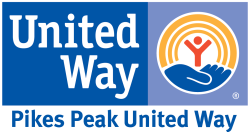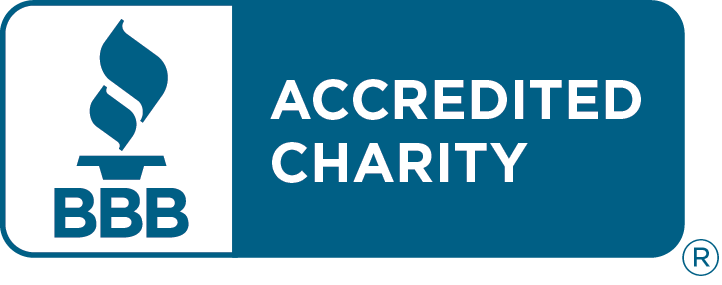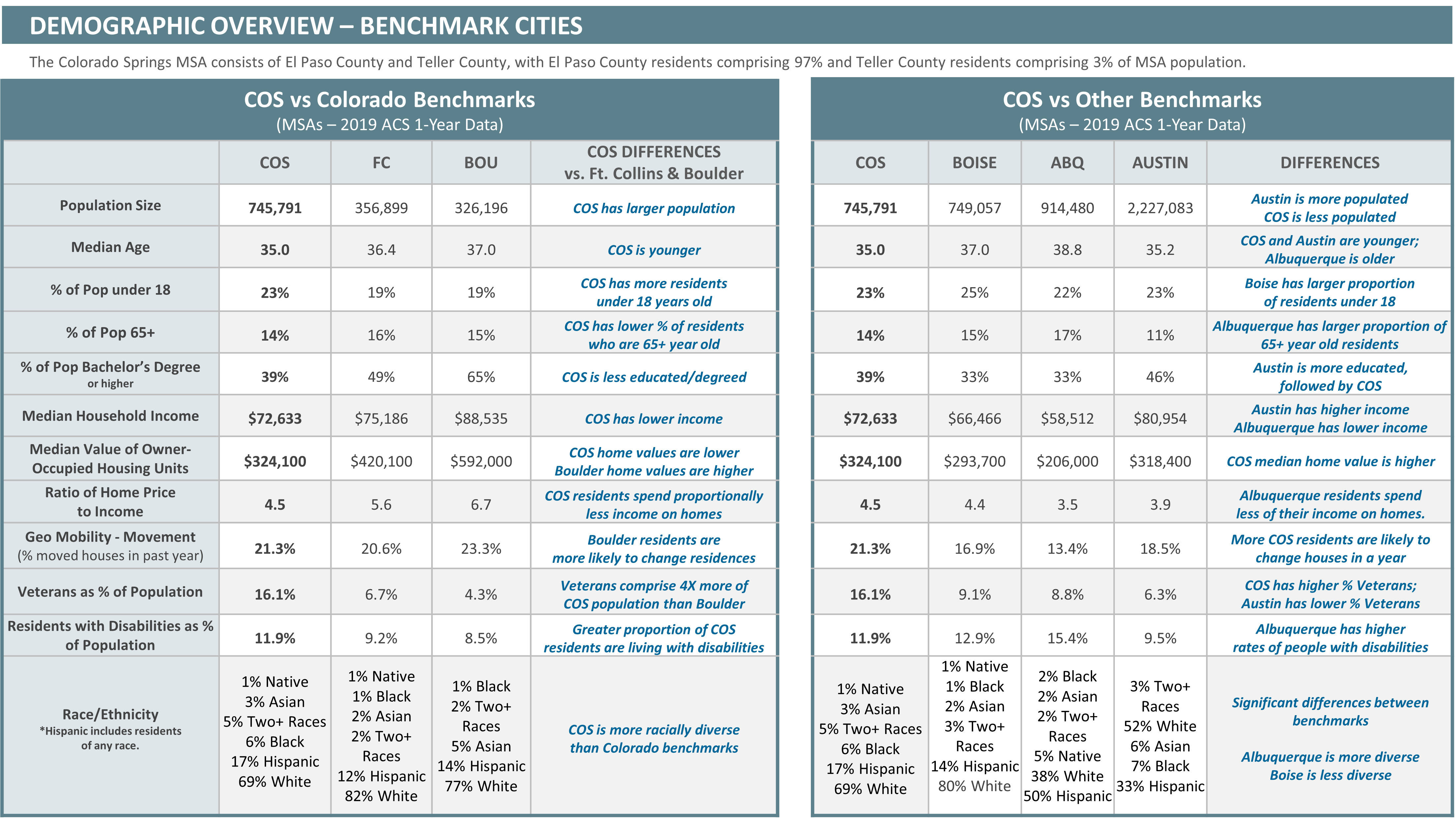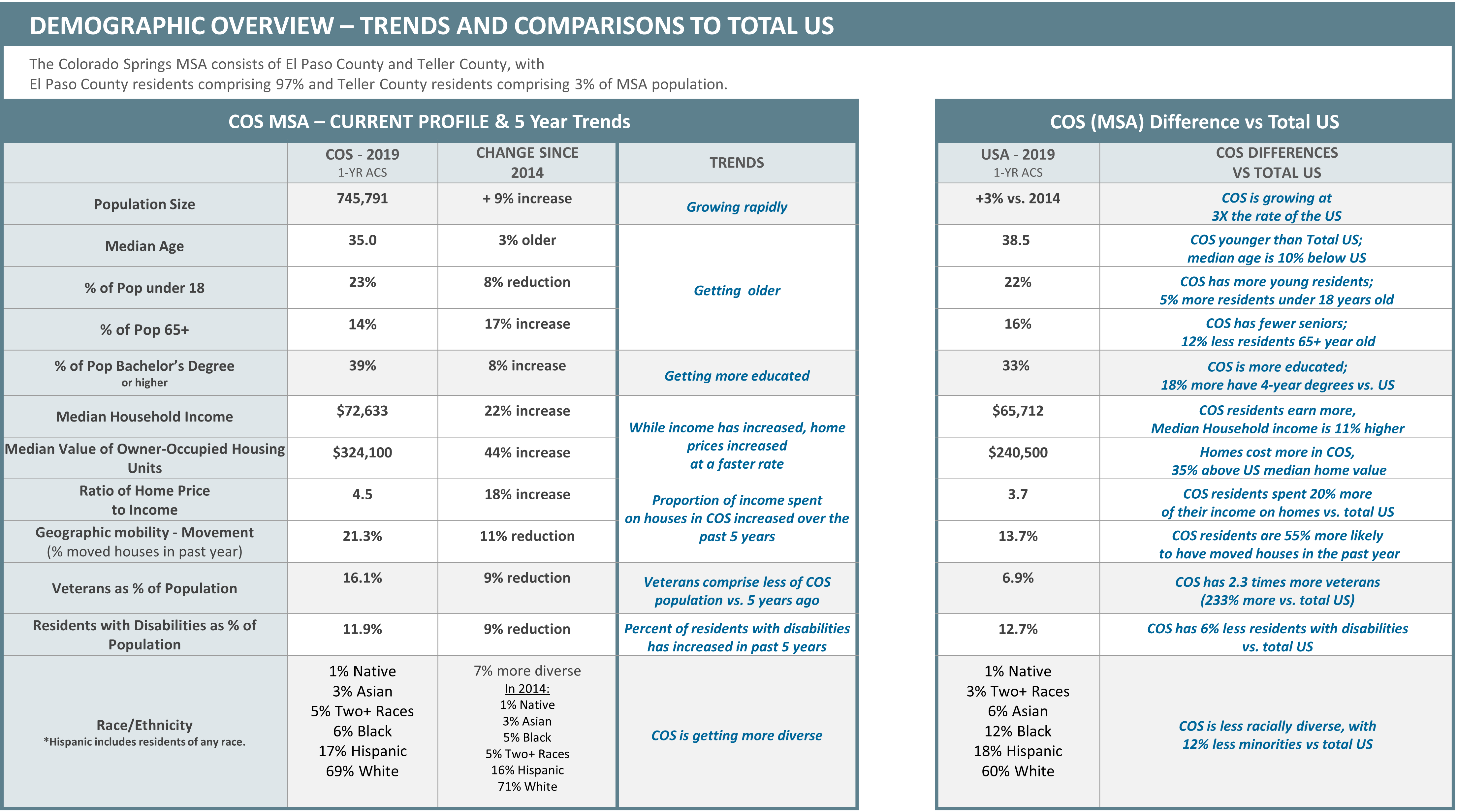2024 - 2025 Grantees
Local resources for families can be challenging to find, but with the volunteers at Assistance League of Colorado Springs, essential needs are met in our community and families flourish. Through collectiveness, this nonprofit is transforming lives and strengthening the community one program at a time.
Assistance League of Colorado Springs
- Program: Operation School Bell
- Start Date: July 1, 2024
- End Date: June 30, 2025
Big Brothers Big Sisters of Colorado
- Program: Big Futures
- Start Date: July 1, 2024
- End Date: June 30, 2025
When young people have the influence of a caring adult mentor, they are more likely to avoid risky behaviors and focus on academics. Today’s youth faces a variety of challenges and being matched with a mentor, Big Brother or Big Sister, can help them navigate these challenges to reach their potential.
CASA’s Whole Child program addresses the needs of the whole child by integration of CASA of the Pikes Peak Region’s Dependency & Neglect (D&N), Life Long Links (LLL), and the Milton Foster Children’s Fund (MFCF) programs. These programs are designed to promote stability, safety, and permanency for children who have been removed from their homes due to abuse, neglect, and/or domestic violence. Dependency and Neglect recruits and trains community volunteers who advocate on behalf of child victims within the 4th Judicial District with the goal to ensure these children achieve safety, stability, and permanency. Life Long Links is a family search program for foster youth who are in out-of-home placement with the goal to provide 3-5 meaningful long-term connections so these youth have support and nurturing once they emancipate from the state. Milton Foster Children’s Fund provides unduplicated resources for foster youth enabling them to obtain meaningful employment, education, and stability as they enter adulthood.
CASA of the Pikes Peak Region
- Program: Whole Child
- Start Date: July 1, 2024
- End Date: June 30, 2025
Catholic Charities
- Program: Family Strengthening Services
- Start Date: July 1, 2024
- End Date: June 30, 2025
The family strengthening initiatives delivered through Family Connections at the Hunt Campus provide families in need with wrap-around services based on crisis triage, screening and assessment, and by setting client goals. Emergency supports and referrals are combined with case management and a host of other programs and services: housing placement support, transportation and employment support, parent education, and child literacy development. By walking with clients on their paths to stability, Catholic Charities addresses immediate needs, helps build resilience against future life challenges, and develops case plans built on achievable options for future self-sustainability. The goal with each of the families worked with is to help them find a path out of crisis and to long-term self-sufficiency.
Community of Caring promotes family stability by providing individuals and families access to basic needs, financial skill building and literacy, and resources to improve and sustain economic well-being and success. This program targets financial success with families through crisis stabilization by providing emergency financial assistance, skill building, resource identification and referrals, education and support, and the development of an individualized success plan.
Community of Caring Foundation
- Program: Southern Teller County Advocacy for Financial Health
- Start Date: July 1, 2024
- End Date: June 30, 2025
Court Care for the Pikes Peak Region
- Program: Court Care for the Pikes Peak Region
- Start Date: July 1, 2024
- End Date: June 30, 2025
Court Care provides free, licensed childcare to anyone that has court-related business in the Fourth Judicial District (El Paso and Teller Counties) and the Municipal Court. The program’s primary focus is to protect children’s welfare and reduce their exposure to potential trauma. Court Care benefits struggling parents by giving them the freedom to speak with dignity and the right to fully participate in their legal proceedings-without their children present seeing, hearing and possibly distracting them.
CPCD supports Early Head Start classrooms that serve disadvantaged children birth to age three and prenatal mothers. CPCD has space to serve 183 young children in its own classrooms and in partner classrooms in and around Colorado Springs. Over 90% of these children are living in poverty and others are homeless or have special needs. CPCD also offers the following: medical, dental, and behavioral health services for children, nutritious snacks and meals for children and families, and extensive family services, including parenting classes and home visits. The Two Generation Program helps low-income parents and caregivers gain career skills and move toward economic independence while their children are receiving a quality early childhood education. CPCD partners with Pikes Peak Community College, Colorado Springs School District 11’s Adult Basic Education Center, and the Pikes Peak Workforce Center to offer the Two Generation Program.
CPCD
- Program: Early Childhood Education alongside The Two-Generation Program
- Start Date: July 1, 2024
- End Date: June 30, 2025
Crossfire Ministries, INC.
- Program: Client Services Program
- Start Date: July 1, 2024
- End Date: June 30, 2025
The purpose of Crossfire Ministries’ Client Services Program is to improve the quality of life of people residing in Colorado Springs and surrounding communities, and to ensure that the basic human needs of food, clothing, and personal hygiene items are available to each person in these communities. Crossfire achieves this by having a distribution warehouse where clients can access fresh food, clean clothing, hygiene products, household goods, and more.
Their food pantry can be accessed once a week. This food pantry mimics a traditional grocery store; clients can shop for the goods they want instead of having a preexisting cart ready for them when they arrive. Crossfire Ministries adds a personal touch to their food pantry as well. Upon checking in, they ask if anyone in the home has a birthday. If they do, they can receive a free birthday cake. The other services like clothing, hygiene, and household items are given out on a more limited basis due to less supplies. By helping families cut costs for adequate, nutritious food, Crossfire is helping to ensure that families, especially those whose incomes fall near or below the El Paso County Self Sufficiency Standard are able to utilize a greater portion of their income for expenses such as adequate housing, utility bills, and education or medical expenses.
Identifying the gaps in care can lead to a greater conversation about the steps to improvement. Through programs such as Mary’s Home and The Women’s Clinic, Dream Centers provide health and hope for people working to rebuild their dreams.
Dream Centers of Colorado Springs
- Program: Women's Clinic
- Start Date: July 1, 2024
- End Date: June 30, 2025
Early Connections Learning Centers
- Program: Early Care & Education alongside The Home Network
- Start Date: July 1, 2024
- End Date: June 30, 2025
The achievement gap begins early and many low-income children enter kindergarten significantly behind their more affluent peers. School success not only has life-long benefits for individuals—including higher educational achievement, higher lifetime earnings and improved health outcomes—but also positively impacts a community’s quality of life and economic well-being. The integrated components of the program —early learning and literacy, family engagement and support, and nutrition and health—help develop children’s readiness for school and the capacity of families to be the primary partners in creating long-term positive outcomes for their children. Established as a project of Early Connections in 2000, Home Network is a shared services program designed to support quality early care and education in Family Childcare Providers (providers). The Home Network is unique, as while providers are a part of the program, they are still independent business owners.
By providing an outcome focused option to teenagers who commit misdemeanor mistakes, the likelihood of repeat offenses declines. At Forge Evolution’s Teen Court program, focus is placed on boosting resiliency and helping youth grow.
Forge Evolution
- Program: Forge Evolution
- Start Date: July 1, 2024
- End Date: June 30, 2025
Fostering Hope Foundation
- Program: Fostering Hope
- Start Date: July 1, 2024
- End Date: June 30, 2025
Fostering Hope recruits and trains teams of 4-8 people/households who act as aunts, uncles and grandparents to El Paso/Teller County foster families. These volunteers provide practical and emotional support to both parents and children with a goal to create the kind of safe, stable and relational environment inherent in healthy families and known by neuroscience to help with healing from development trauma (i.e. abuse and neglect). For the parents, this support ranges from a listening ear and friend to a stressed foster mom, to everyday help with laundry and providing meals and transportation. For the kids, it means play dates, help with homework, and someone in the stands at a school play or ballgame. Collectively, these deeply personal acts of service over time help kids to re-establish trust and self-confidence and move from a state of survival to resiliency. As the kids become teens and approach adulthood, most will emancipate, or “age out” of the system. When they do, the program adapts with their changing needs. Volunteers step into new roles like helping with checkbooks and resumes and helping the kids plan for the future. Fostering Hope focuses on building a community of peers and healthy adult relationships they can depend on into their late 20s or until no longer needed. They get together for movie nights and monthly gatherings, which foster a sense of belonging and safety as they prepare for independence. Fostering Hope partners with a network of 25 employers who are committed to providing jobs and internships in a trauma-sensitive environment. They also offer transitional housing with subsidized rent and safeguards from eviction. Through this community, they also find committed community members who provide them with cars to help them get to work/college, as well as home furnishings and other needs.
Funding from Pikes Peak United Way supports Greccio to provide stable, safe, affordable housing; to offer resources for residents to achieve stability; and to promote solutions to the affordable housing needs of our community. Safe and stable affordable housing coupled with supportive services ensure that residents are successful in maintaining their living situation while being able to work towards breaking the cycle of poverty. Greccio Housing is unique from other affordable housing providers in Colorado Springs in that the focus is to not only provide permanent housing options and wrap around support services, but also focus on community-minded solutions and growth in both of these areas.
Greccio Housing Unlimited, INC.
- Program: Family Stability Initiative
- Start Date: July 1, 2024
- End Date: June 30, 2025
Homeward Pikes Peak
- Program: Housing First
- Start Date: July 1, 2024
- End Date: June 30, 2025
Housing First is a national, evidence-based program strongly supported by the Department of Housing and Urban Development (HUD). Housing First emphasizes stable, permanent housing as a primary strategy for ending homelessness through case management and other services. HPP’s Housing First program similarly removes barriers to housing (e.g., past evictions, owing a landlord, criminal history, sobriety, engagement in mental health treatment) and prioritizes those with the most need when possible by housing them as quickly as possible. The program provides housing vouchers for disabled, chronically homeless adults, Veterans, and families with substance abuse issues. It can accept clients with no income or insurance, criminal histories, evictions, and domestic violence issues. The overall goal of the program is to quickly house the most vulnerable homeless populations in the community and help them achieve long-term sustainability through case management and supportive services.
Investing into our youth can be impactful on the knowledge and skills they need to own their economic success, plan for their futures, and make educated decisions. Junior Achievement features programs that inspire and prepare young people to succeed in a global economy.
Junior Achievement of Southern Colorado
- Program: Finance Park
- Start Date: July 1, 2024
- End Date: June 30, 2025
Mt. Carmel Veterans Service Center
- Program: Helping Veterans and Their Families Increase Stability and Improve Quality of Life
- Start Date: July 1, 2024
- End Date: June 30, 2025
Mt. Carmel provides a safety net of basic needs and wrap-around services for our military community. They work with veterans, military members and their families to prevent homelessness and other emergency needs by addressing critical issues and creating stability for families. The goal is to create measurable improvements in the stability and well-being for veterans, military, and their families.
The Veteran & Family Resource Center gives a leg-up to clients and helps them achieve long-term success through ongoing support. These services address complex and dynamic needs and rely on a broad scope of community partners.
KPC was created by a family whose infant son, Kevin Patrick Callum, died from abusive head trauma at the hands of his overwhelmed grandparents. Through KPC, LFS offers no-cost emergency respite childcare to parents or caregivers of young children. Services range from hourly care within the same day to up to three days of care. While at KPC children are provided with food, clothing, and all other necessities so parents do not need to worry about bringing anything with them when dropping off their children. KPC capacity is 12 children if all viable beds are utilized. KPC is the only provider of free emergency and planned respite childcare in the Pikes Peak area.
Lutheran Family Services
- Program: KPC Respite Center
- Start Date: July 1, 2024
- End Date: June 30, 2025
Partners in Housing
- Program: Family Self-Sufficiency
- Start Date: July 1, 2024
- End Date: June 30, 2025
Partners in Housing has operated as the largest and longest running Transitional Housing program in the Pikes Peak Region for over 28 years. The Family Self-Sufficiency Program objectives include helping families locate or improve their employment situation, increase their income, continue their education, manage their finances, and move to their own stable housing. Increasing financial literacy is a cornerstone of the program, they offer monthly budget counseling and access to their certified credit counselor to all future, current and past partners. These resources allow clients to explore their financial health and knowledge in a safe, supportive space, leading to lasting change. By addressing known barriers, such as lack of financial literacy, hard and soft skills related to employment, education, and overall stability; families are able to leave the program on a solid foundation and with the knowledge that they are capable of success.
When young lives are given access to resources and mentorship, control is gained over their own future. Peak Education focuses on empowering students to take ownership of their educational journey and receive the support and mentorship to overcome barriers.
Peak Education
- Program: Access and Equity
- Start Date: July 1, 2024
- End Date: June 30, 2025
Ronald McDonald House Charities of Southern Colorado
- Program: Ronald McDonald House
- Start Date: July 1, 2024
- End Date: June 30, 2025
By lending a hand to families with critically ill children, the weight on both the child and parents can be reduced. At the Ronald McDonald House Charities of Southern Colorado, families can be together through provided care and resources.
Each year, Safe Passage serves more than 1000 children and non-offending caregivers in the midst of abuse investigations. This organization gives abused children a voice and enables the healing process by acting as the single source of contact for medical, investigative, and legal services.
Safe Passage
- Program: Victim Services
- Start Date: July 1, 2024
- End Date: June 30, 2025
Silver Key Senior Services
- Program: Food Pantry
- Start Date: July 1, 2024
- End Date: June 30, 2025
Silver Key seeks to actively address family instability through increasing access to food for seniors – many of them serving as heads of multi-generational households providing childcare to their grandchildren. This increasing reliance on grandparents as a source of childcare means that child dietary intake, childhood obesity and children’s health may be increasingly influenced by grandparents’ food provision – often reliant on food pantry assistance to meet monthly budget needs. Grandparent care providers shape children’s eating behaviors in substantial ways and are considered crucial to positively impact healthy eating in children. Funds from Pikes Peak United Way are used to expand the number of senior clients who are able to access the Food Pantry and provide nutritional education to these clients and grandparents responsible for feeding children in their care.
Pikes Peak United Way funding supports new pathways to stability and self-sufficiency through the provision of TESSA’s Victim Services, which includes the 32-bed Safehouse, a 24/7 crisis line, a Children’s Program that includes therapeutic support, victim advocacy, court accompaniment, hospital advocacy, rural offices, a Clinical Program, Housing First, and legal services for victims of domestic violence and sexual assault. The breadth of these services are designed to guide clients through the transition from victim to survivor, empowering them to create safe and self-sufficient lives for themselves and their families. Research indicates that emotional support and intervention by informed, supportive service providers and community services can mitigate the negative effects of domestic and sexual violence. Survivors who receive assistance of this nature have a greater capacity to overcome past traumas and break the cycle of violence for themselves and their children.
TESSA
- Program: Victim Services
- Start Date: July 1, 2024
- End Date: June 30, 2025
The Place
- Program: Youth Services
- Start Date: July 1, 2024
- End Date: June 30, 2025
The Place’s Employment and Education program supports youth to re-enroll in school, pursue their GED, or move toward higher education or trade certification. Job Readiness Training (JRT) teaches necessary skills for employment, including some trade-specific certifications.
The Early Childhood Mental Health program combines competencies in the fields of early childhood mental health, adult mental health, professional consultation, and adult learning to support social-emotional development, and understanding of trauma, risk, and resilience in our community. Funding from Pikes Peak United Way supports continued development and growth of the Early Childhood Mental Health classes, trainings, consultations, and therapies currently being hosted for both children ages zero to eight and their parents, other caregivers, and community partners across the Pikes Peak region.
The Resource Exchange
- Program: Early Childhood Services
- Start Date: July 1, 2024
- End Date: June 30, 2025
Tri-Lakes Cares
- Program: Client Services Program
- Start Date: July 1, 2024
- End Date: June 30, 2025
TLC ensures that economically disadvantaged households have access to essential needs such as food, housing, medical care, and financial assistance during emergencies to keep them healthy and safe. Low-income households are often forced to choose between putting food on the table or keeping the lights on, between getting medical care or paying the rent. TLC helps resolve these difficult choices by providing access to basic services. Case Managers help clients identify their most pressing needs and can offer financial assistance to alleviate a variety of emergency situations. Before a family can be self-sufficient, their basic needs for food, shelter, medical care, and financial stability, must be met. TLC believes that when the parents receive support and stability, they are able to better nurture and care for their children.
At Care and Share Food Bank, their core purpose is to bridge the gap between hunger and abundance. Their mission is to provide food, partnering opportunities, and education to fight hunger and food insecurity in Southern Colorado communities. Soup kitchens, pantries, community centers, churches, and schools provide hope. Whether dishing out lunch to 600 people each day, or serving six families in the church once a month, together, they make the world a better place.
Care and Share Food Bank of Southern Colorado
- Program: Hunger Relief
- Start Date: July 1, 2024
- End Date: June 30, 2025
Serenity Recovery Connection
- Program: Peer Recovery Coaching
- Start Date: July 1, 2024
- End Date: June 30, 2025
Fear and anxiety set in when a person becomes involved with the Court system. Through shared lived experiences from a peer coach, Serenity Recovery Connection walks side by side with those who might be going through a Court case, DHS case, parole, probation or a community corrections sentence.
Many Hope & Home foster parents have attributed their success to a supportive network of foster families in our community. One of the keys to healthy and happy fostering is creating friendships with people who understand what you’re uniquely going through. This is why Hope & Home invests so heavily in our monthly support groups – complete with FREE childcare for the whole family.
Hope & Home
- Program: Support Groups
- Start Date: July 1, 2024
- End Date: June 30, 2025



